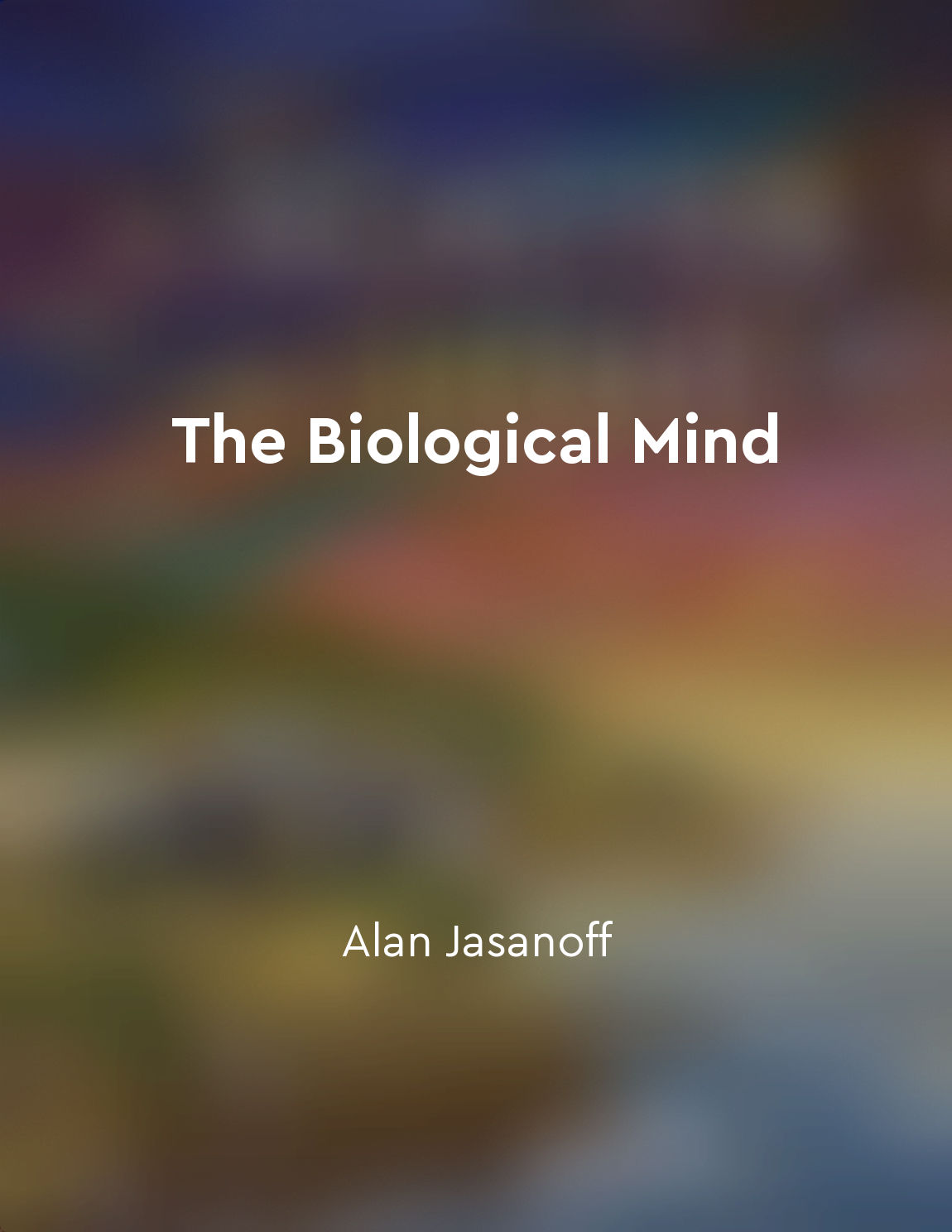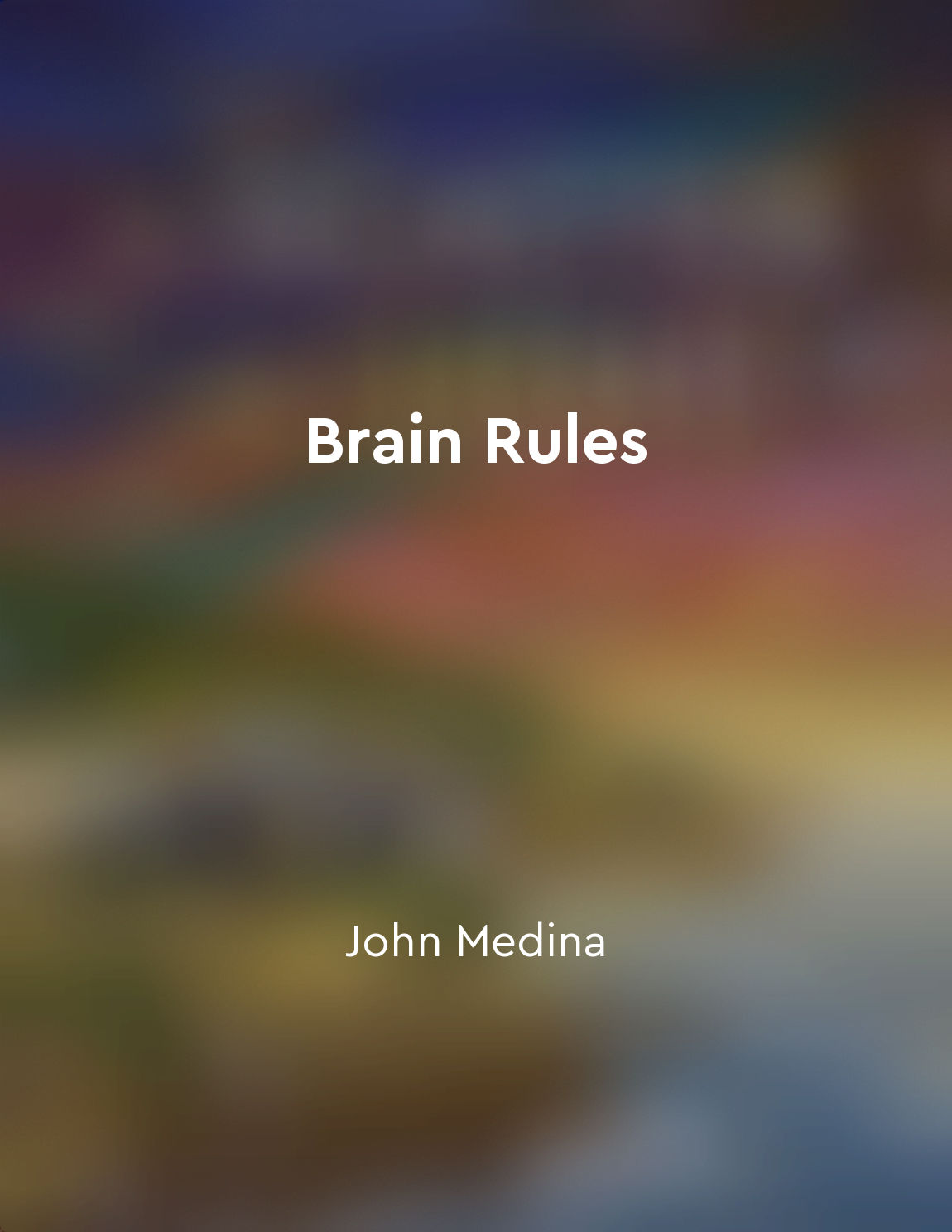Insights into the brain's functioning can lead to better treatment strategies from "summary" of The Man who Mistook His Wife for a Hat by Oliver Sacks
In the case of Dr. P., who mistook his wife for a hat, a deeper understanding of the brain's functioning was crucial in developing effective treatment strategies. Dr. P. suffered from visual agnosia, a condition that caused him to be unable to recognize faces, objects, or even his own reflection in the mirror. This condition stemmed from a specific lesion in the occipital-parietal region of his brain, which disrupted his ability to perceive and interpret visual information accurately. By studying Dr. P.'s case and others like it, neurologists were able to gain valuable insights into the complex workings of the brain. They discovered that different regions of the brain are responsible for processing various types of sensory information, and that damage to these areas can result in a wide range of perceptual and cognitive deficits. This knowledge allowed them to develop targeted treatments and interventions to help patients like Dr. P. improve their quality of life. For example, in Dr. P.'s case, his neurologist worked with him to develop compensatory strategies to help him navigate the world despite his visual agnosia. By focusing on auditory and tactile cues, Dr. P. was able to recognize objects and faces through other senses, enabling him to function more independently in his daily life. This personalized approach to treatment, based on a deep understanding of the brain's functioning, was far more effective than a one-size-fits-all approach.- The case of Dr. P. highlights the importance of delving into the intricacies of the brain's functioning to develop tailored treatment strategies for individuals with neurological disorders. By continuing to explore the mysteries of the brain, researchers and clinicians can uncover new insights that have the potential to revolutionize the field of neurology and improve the lives of countless patients.
Similar Posts

Mental disorders can arise from disruptions in brain function
Disruptions in brain function can be at the root of mental disorders. When the intricate balance of neural activity is disturbe...
Yoga can improve brain flexibility
Norman Doidge introduces the idea that practicing yoga can enhance flexibility in the brain. He explains that when we engage in...
Authorship and consciousness intertwine
The relationship between authorship and consciousness is a complex web that intertwines in unexpected ways throughout 'The Echo...

Longterm memory is often sustained by repetition
Longterm memory is often sustained by repetition because the brain is constantly looking for patterns. When the brain detects a...

The book serves as a reminder of the fragility and resilience of the human brain
Throughout the clinical tales presented in the book, we are confronted with stories that highlight the delicate nature of the h...
Visualizing words can enhance reading skills
Visualizing words can enhance reading skills. This concept highlights the importance of creating mental images while reading te...

The challenges and triumphs of living with a neurological disorder
Living with a neurological disorder is like navigating through a maze of challenges and triumphs. The individuals who face thes...

Dr. Sacks' empathy and understanding shine through in each clinical tale
Dr. Sacks' ability to connect with his patients on a deep emotional level is evident throughout the clinical tales he shares in...
Complex networks of neurons allow for communication within the brain
The intricate web of neurons in the brain forms a complex network that is essential for communication within the brain. Each ne...

